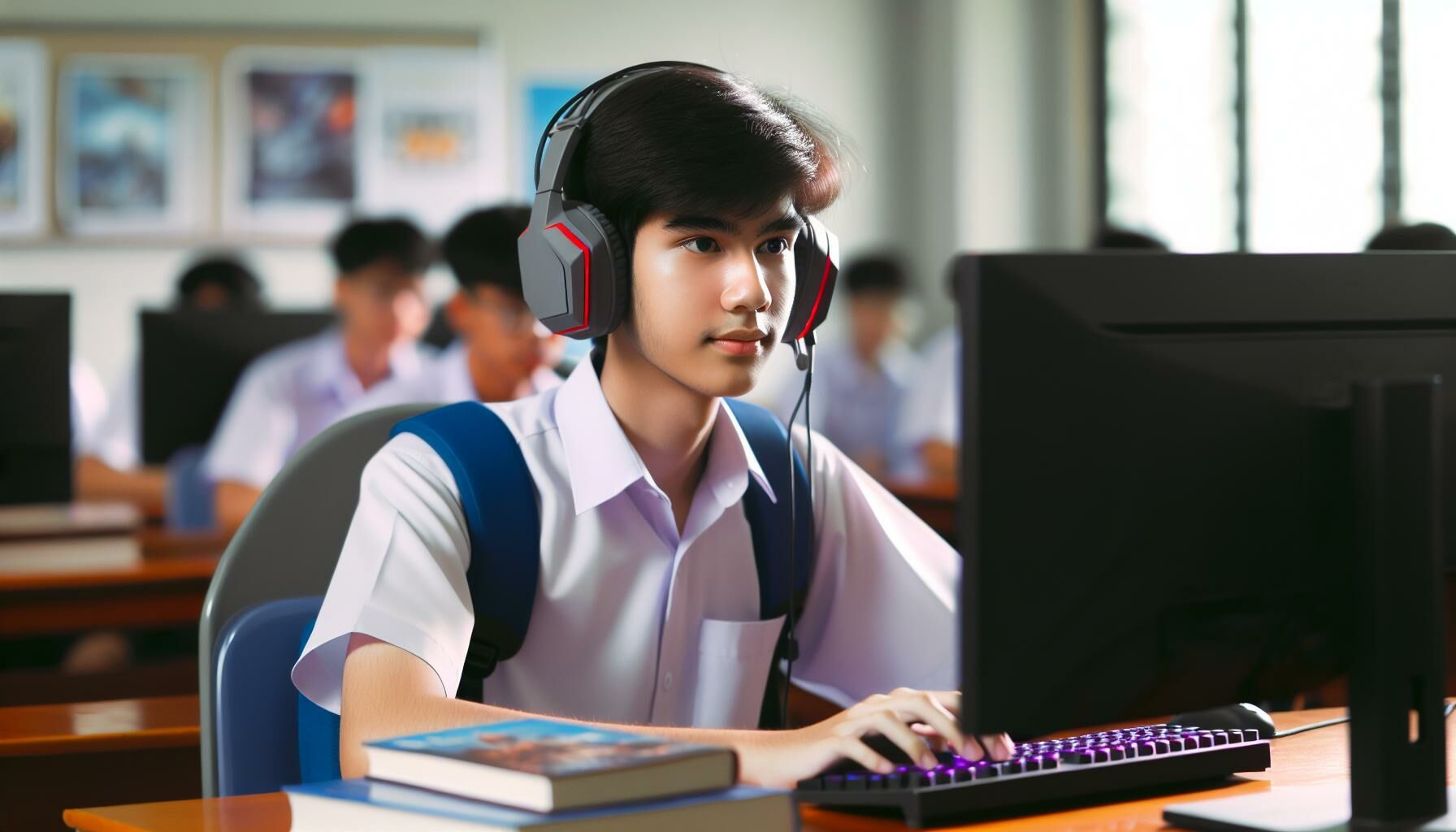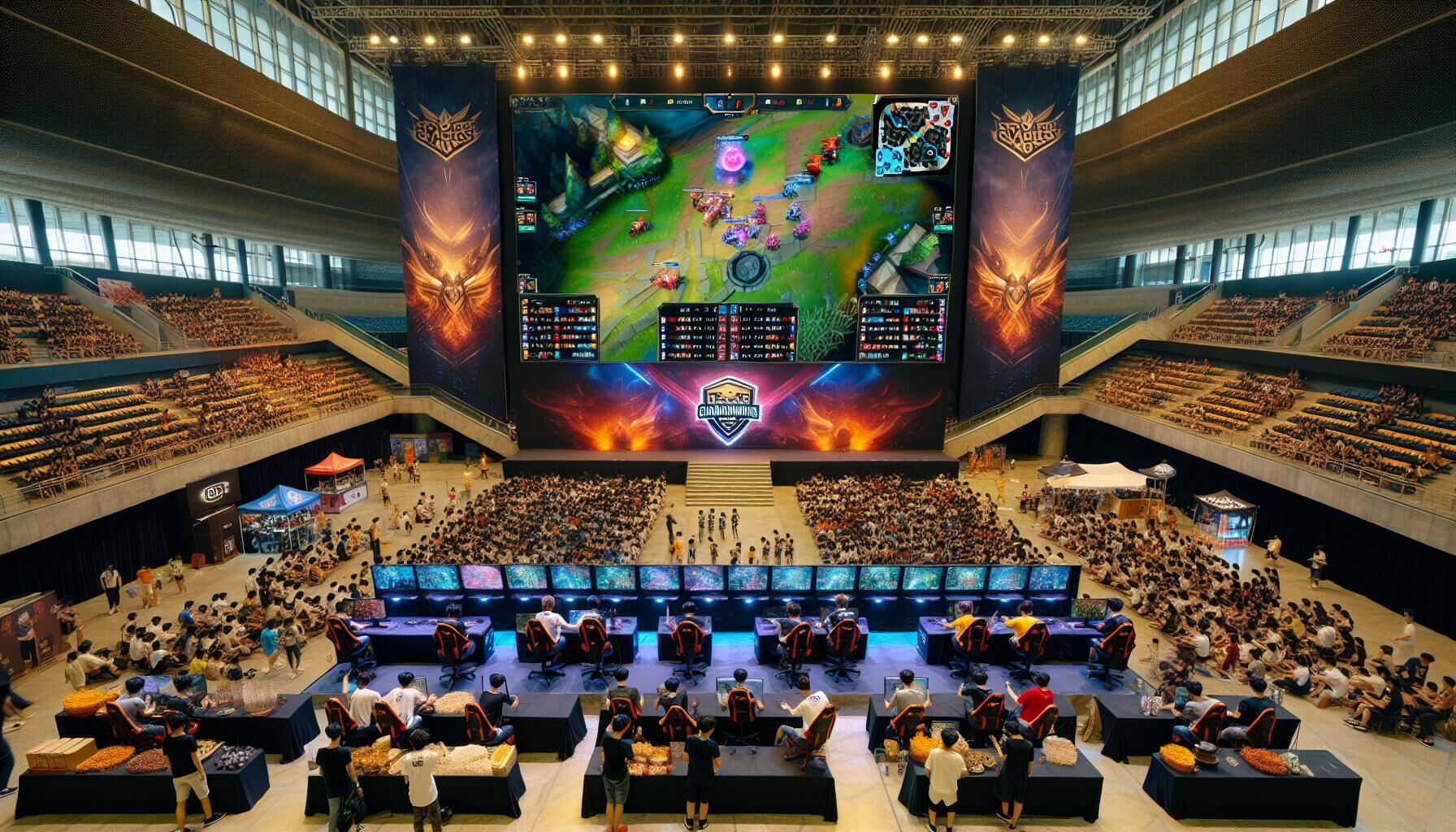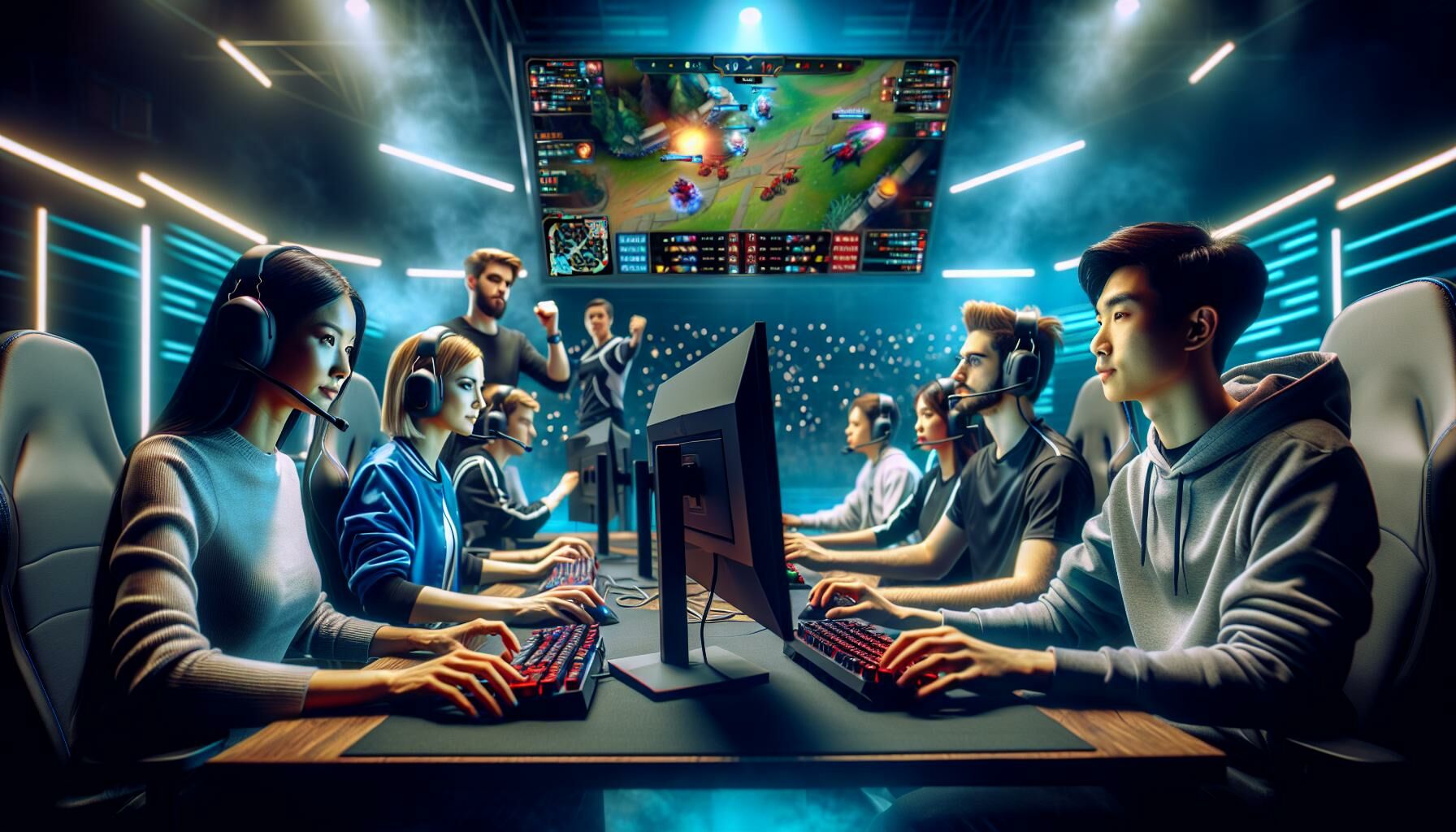Balancing esports ambitions with academic success

As we move into 2024, finding strategies to integrate your passion for gaming with securing an educational degree is crucial. The esports industry offers diverse career options beyond just game participation, including roles in computer engineering and programming, highlighting the feasibility of thriving in both domains. However, it’s essential to recognise that pursuing this dual path will involve obstacles.
This article aims to provide clear strategies for excelling both as an esports professional and an academic achiever. We will delve into expert insights and keep you updated on the latest trends within both the gaming community and education sectors. If you’re ready to explore how to enhance your gaming skills while earning academic credentials simultaneously, join us on this journey. Discover how to succeed in your gaming pursuits while building a strong educational foundation for your future.
Esports and education: how to conciliate both?

Creating win-win situations: How high schools can help an esports career
Balancing esports ambitions with academic responsibilities presents a distinctive challenge for students aiming to excel in both areas. High schools are instrumental in facilitating this equilibrium, allowing students to follow their gaming passions while maintaining academic excellence.
By establishing esports clubs or teams, similar to traditional sports programmes, high schools can provide a structured setting that fosters teamwork, strategic thinking, and effective time management. These competencies are vital for both academic achievement and success in the competitive realm of gaming. Engagement in such programmes enables students to effectively allocate their time between honing gaming skills and concentrating on scholarly pursuits.
Moreover, incorporating esports as an elective subject into the school curriculum marks an innovative step towards acknowledging the value of esports as a legitimate study area. This inclusion gives students opportunities to investigate careers in gaming-related fields such as game development, event organisation, or marketing within the evolving esports industry. Courses focusing on gaming business principles or programming offer alignment with student interests in gaming while imparting essential skills for professional roles within esports.
Collaborations between high schools and higher education institutions offering scholarships for esports participants yield advantageous prospects. These partnerships can lead to specialised seminars, workshops, and mentoring from established personalities in the esports community. Such efforts provide guidance on achieving a balance between scholastic achievements and competitive gaming endeavours.
It is crucial for educational bodies to advocate for responsible gaming practices among students. Measures should encompass discussions about moderation in gameplay, adherence to online safety standards, and cognizance of excessive gaming habits. Educating students on these topics aids them in making informed decisions regarding managing gameplay alongside other commitments.
In summary, high schools play a critical role in nurturing students’ parallel ambitions of academic achievement and esports prowess. Through well-structured esports initiatives, integration of relevant coursework into curricula, fostering connections with colleges via scholarship programmes, and encouraging responsible gaming conduct, they equip students not only to manage their dual interests but also to thrive concurrently in both domains.
Strategies for balancing esports aspirations and academic responsibilities

Time management tips
Effective time management ranks highly for students juggling esports and academics. They must allocate specific hours for gaming, studying, and rest. Utilising planners or digital apps helps set a structured schedule, making it easier to adhere to commitments. Prioritising tasks based on deadlines and importance ensures academic responsibilities don’t fall by the wayside. Breaks are crucial, too. They prevent burnout, keeping the mind sharp for both gaming strategies and academic pursuits.
The importance of setting realistic goals and having a plan B
Achieving a balance between esports ambitions and academic duties requires the establishment of pragmatic objectives that emphasise well-being. It is advisable to employ the SMART criteria, which advocate for goals that are specific, measurable, achievable, relevant, and time-bound. This method facilitates success in both gaming activities and scholarly commitments, effectively preventing burnout. Additionally, devising a backup plan for scenarios where initial goals do not match real-world results is valuable. Crucially, focusing on educational achievements enhances future career prospects substantially, regardless of one’s accomplishments in esports.
Establishing a support system
A robust support system is vital for striking a balance between esports ambitions and educational commitments. Engaging with mentors, coaches, and academic advisors who understand the significance of both areas can offer guidance tailored to a student’s needs. Similarly, joining communities of like-minded peers provides emotional support and practical advice on balancing commitments. Families play a critical role, too, offering the encouragement and understanding necessary for sustaining motivation across both fronts.
Incorporating these strategies into daily routines helps students navigate the challenges of combining esports and education, enhancing their potential for success in both arenas.
Challenges in balancing esports and academic life

Navigating the balance between a fervour for esports and academic obligations is undoubtedly challenging. Yet, as esports gain increasing recognition in both high schools and colleges, students find themselves in a position to pursue their gaming interests without sacrificing their educational goals. The essence of achieving this balance lies in adopting effective time management practices, setting realistic objectives, and maintaining a flexible approach to unforeseen challenges. Additionally, the role of supportive peers cannot be underestimated in surmounting potential hurdles. With esports emerging as a legitimate career option, following these guidelines becomes crucial for anyone aiming to succeed both in gaming and academically. Ultimately, through careful planning and implementation, it is feasible to excel in these two domains concurrently, unlocking numerous opportunities along the way.
Latest Thailand News
Follow The Thaiger on Google News:


























